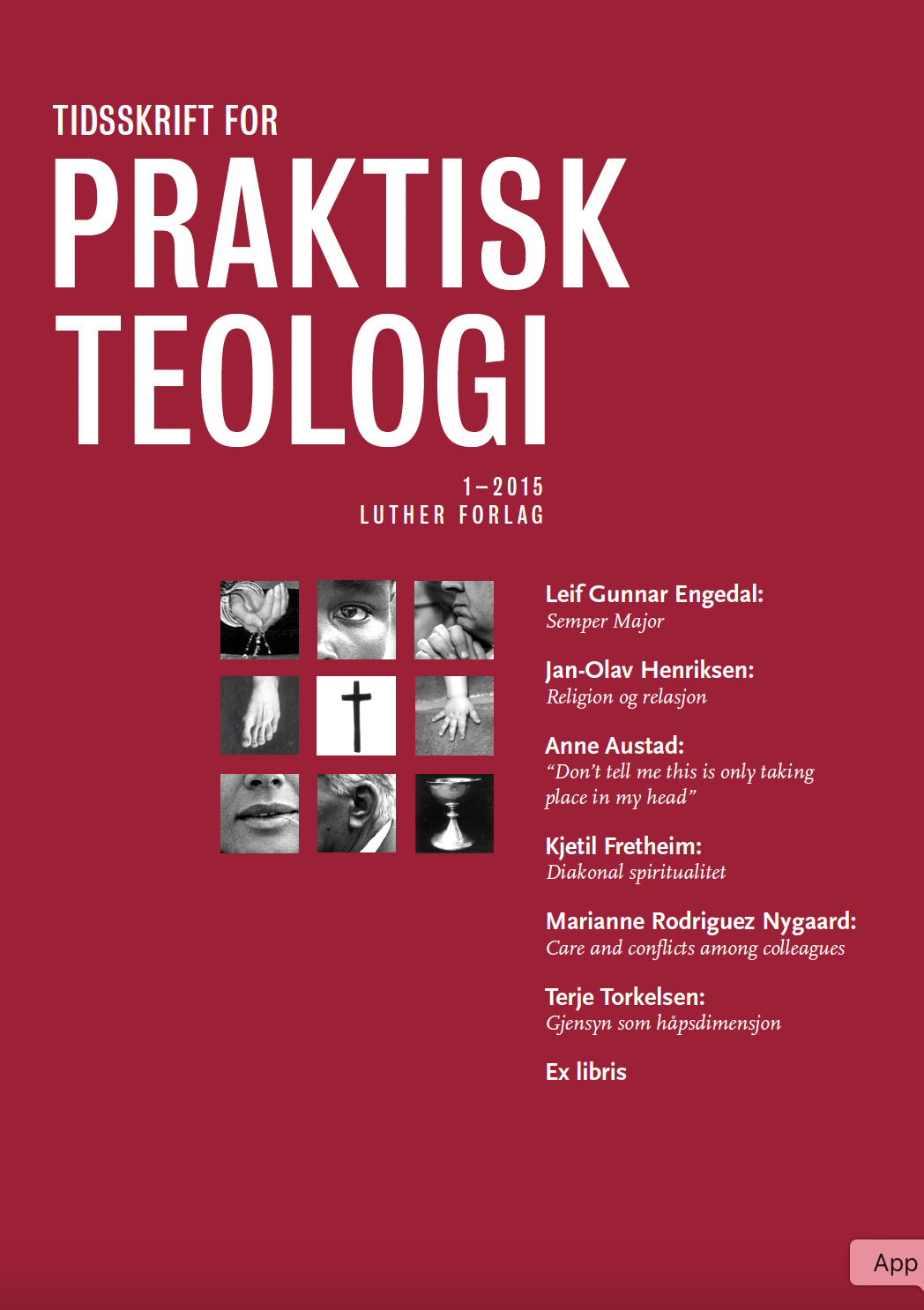Care and conflicts among colleagues
Deacons’ professional knowledge development in the Church of Norway
DOI:
https://doi.org/10.48626/tpt.v32i1.5170Sammendrag
How does the expression of care between colleagues influence knowledge development in workingcommunities? This paper presents the results of an ethnographic field study of five deacons in fiveChurch of Norway congregations, focusing on their professional knowledge development with col-leagues in the congregational context. The analysis applies theories concerning the relation betweenknowledge creation and care to highlight how the presence or absence of care can influence know-ledge development. Knowledge development refers to formation of new knowledge rather thanadaptation of existing knowledge. Findings indicate two main constraints regarding deacons’ know-ledge development in their working communities. First, interactions between staff members in thecongregations I studied indicate a tendency of low-care exchanges. Second, deacons’ knowledge cre-ation is characterised by pre-defined and parallel work processes within their work environmentwhich isolate the individuals from one another. The results show connections between the know-ledge created and the extent of care expressed, as well as how relational power influences the know-ledge created. I argue that theories of knowledge creation and care must consider to a greater extentthe significance of a community’s power relations in the knowledge development process.





